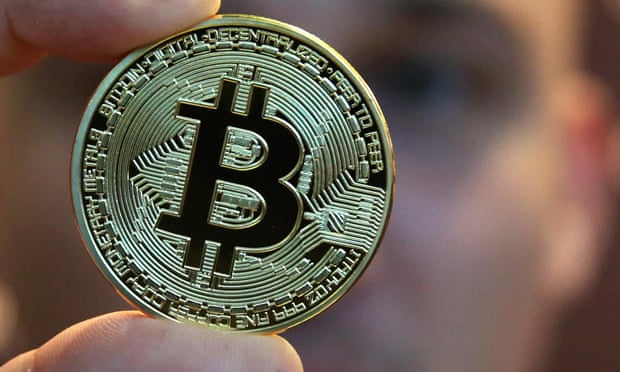Steven has lost more bitcoin than most people will ever own.
Raised on the remote Shetland archipelago, he left school at 13 to become a trawlerman before moving into construction, eventually earning £85,000 a year digging tunnels for Crossrail.
Despite his self-made success, compulsive cryptocurrency trading, alcohol and drug use took over his life.
In the fog of multiple addictions, he lost the “addresses” of between five and 10 bitcoins, rendering his digital buried treasure – worth up to £300,000 today – impossible to retrieve.
Q&A
What is cryptocurrency?
Show

Cryptocurrencies are an alternative way of making payments to cash or credit cards. The technology behind it allows the ‘money’ to be sent directly to others without it having to pass through the banking system. For that reason they are outside the control of governments and are unregulated by financial watchdogs – and transactions can be made in a way that keeps you reasonably pseudonymous.
If you own a crypto-asset you control a secret digital key that you can use to prove to anyone on the network that a certain amount of that asset is yours. If you spend it, you tell the entire network that you have transferred ownership of it, and use the same key to prove that you are telling the truth. Over time, the history of all those transactions becomes a lasting record of who owns what: that record is called the blockchain.
Bitcoin was one of the first and biggest cryptocurrencies and has been on a wild ride since its creation in 2009, sometimes surging in value as investors have piled in – and occasionally crashing back down. Dogecoin – which started as a joke – has also seen a stratospheric rise in value.
Sceptics warn that the lack of central control make crypto-assets ideal for criminals and terrorists, while libertarian monetarists enjoy the idea of a currency with no inflation and no central bank.
The whole concept of cryptocurrencies has been criticised for its ecological impact, with “mining” for new coins requiring vast energy reserves and the associated carbon footprint of the whole system.
Richard Partington and Martin Belam
Steven spotted the potential of bitcoin early and he had a talent for trading. But even if he had that money now, his addiction means it would soon be squandered.
“Trading is gambling, there’s no doubt about it,” he says.
“I studied and studied. I taught myself how to be a good trader and tried really hard to manage my accounts and stick to a set of rules.
“But my mind would twist and I’d go all in, like a poker player that thought he had the perfect hand. I was convinced I was going to be a bitcoin millionaire.”
Now in recovery at the Castle Craig residential treatment clinic in Scotland, Steven fears that legions of young people are being lured into high-risk trading and potentially addiction, based on the same misguided quest for untold riches.
“A whole generation think that with a little mobile phone they can win, that they can … beat the market,” he says.
“It scares the bejesus out of me.”

Steven’s fears are founded partly on crypto’s rapid emergence into the mainstream.
When he started investing in 2015, digital currencies meant nothing to most people.
Now, they are being touted as a more democratic alternative to a monopolistic and exploitative global financial system.
As the Guardian revealed on Friday today, crypto firms launched a record-breaking promotional push in London last year, targeting millions of commuters with 40,000 adverts on billboards, at tube stations, in carriages and across the side of double decker buses.
Advertisers included relatively obscure names such as Hex, Kraken and Puglife about whom consumers know little, if anything.
Meanwhile, football clubs and players, not to mention globally recognised celebrities, tout crypto investments on a daily basis via social media.
This week, reality TV star Kim Kardashian West and boxer Floyd Mayweather Jr were named in a lawsuit alleging that they helped promote crypto firm EthereumMax, as it made “false and misleading” statements that left investors nursing heavy losses.
An Instagram post about EthereumMax, to Kardashian’s 250 million followers, may have been the most widely seen financial promotion of all time, according to the head of the UK’s Financial Conduct Authority (FCA).
Yet despite their ascendancy – and warnings that governments could suffer “limitless” losses – cryptoassets remain unregulated in the UK, pending a Treasury review.
That means that the FCA, the UK’s financial regulator, is all but powerless to influence how the industry behaves.
While some trading platforms that offer digital assets are regulated – because they also offer more traditional financial instruments – crypto coins and tokens are not.
Cryptoasset executives do not have to prove that they are fit and proper people to take people’s money. The companies they run are not required to hold enough cash to repay investors if they go bust. Nor must they worry about the FCA’s stipulation that financial promotions, such as those splashed across public transport in London, are fair, clear and not misleading.
Amid the marketing blitz, the Advertising Standards Authority is the only watchdog that has bared its teeth. It is investigating one advert by the cryptocurrency Floki Inu and has already banned one for Luno Money.

“If you’re seeing bitcoin on a bus, it’s time to buy,” the Luno advert insisted, contrary to prevailing investment wisdom.
Luno Money told the Guardian it would welcome an “effective regulatory framework”.
But in the ongoing vacuum of oversight, experts fear that cautionary tales of addiction, such as the one told by Steven, are being drowned out by powerful, overwhelmingly positive messages.
To monitor the type of messaging sent out by marketing teams, the Guardian created an experimental cryptocurrency portfolio – holding a mixture of bitcoin, ether and Shiba Inu.
As bitcoin slumped towards the end of 2021 and into 2022, having reached all-time highs just weeks earlier, the Twitter account of smartphone trading app eToro remained doggedly optimistic.
“Is bitcoin on its way to a new high?,” it asked, as the slide began. “We’ve seen bitcoin rally before. But could this be the one to take it to the MOON?”
The answer, for the time being at least, was “No”. But holders of crypto portfolios were encouraged to stay positive.
“Your account gained 1.87% yesterday,” one app notification read, as the slump abated. “You had a good day. Share the news with everyone.”
No such invitation appeared on the far more frequent days when the value of the Guardian’s portfolio went down.
“It’s a very strategic marketing ploy,” says Dr Anna Lembke, one of the world’s foremost addiction experts, professor of psychiatry at Stanford University School of Medicine and author of the book Dopamine Nation.
“They’re encouraging you to amplify the wins and ignore the losses, creating a false impression there are more wins.”
Asked about this, eToro says that it is “committed to helping retail investors engage with each other and foster an environment of learning and collaboration”, adding that its platform is not “gamified”.
According to eToro’s UK managing director, Dan Moczulski, some users make their account public so that “all investments are visible to others, whether they are profitable or not”.
The company said it also provides educational tools, performs know-your-customer checks and encourages long-term, diversified investing.
But Dr Lembke is concerned by the potential for the social media element to fuel compulsive behaviour in crypto trading, an activity she says bears the hallmarks of addictive gambling products but without the acknowledged risk.
“When you mix social media with financial platforms, you make a new drug that’s even more potent,” she says.
Social media posts pushing crypto frequently refer to Fomo – the fear of missing out – fuelling an urge to participate.
“You get this herd mentality where people talk to each other about what the market is doing, they have wins together, losses together, … an intense shared emotional experience.”
“We get a little spike in dopamine, followed by a little deficit that has us looking to recreate that state.”
This, she says, echoes characteristics of gambling but with a crucial difference.
“It’s less stigmatised,” she says. “It has this socially sanctioned status as something that maverick smart people do.”
Parallels with gambling are becoming harder to ignore.
GamCare, which runs the National Gambling Helpline, said it fields about 20 calls a week related to crypto. Callers reported trading for 16 hours a day, making huge losses and struggling to cope with the guilt.
As with gambling, where every one addict is estimated to harm seven other people, many were suffering at the hands of someone else’s habit.
One recounted how her partner’s trading obsession was leading them to spend time away from the family. Another said their partner had taken to trading while in recovery from alcoholism, spending every waking hour making trades.
GamCare has even dealt with young patients who bought digital coins in a desperate attempt to make enough money to get on to the property ladder, only to lose life-changing sums.
Sign up to the daily Business Today email or follow Guardian Business on Twitter at @BusinessDesk
At Castle Craig, where Steven is receiving treatment, the first crypto addict arrived at the clinic in 2016, followed by more than 100 since then.
“More and more people are isolated and are doing this [trading], especially since Covid,” says Tony Marini, the senior specialist therapist at the clinic and a recovering gambling addict himself.
“It’s tenfold already since 2016, so what’s it going to be like in the next five years?”
Stay connected with us on social media platform for instant update click here to join our Twitter, & Facebook
We are now on Telegram. Click here to join our channel (@TechiUpdate) and stay updated with the latest Technology headlines.
For all the latest Business News Click Here
